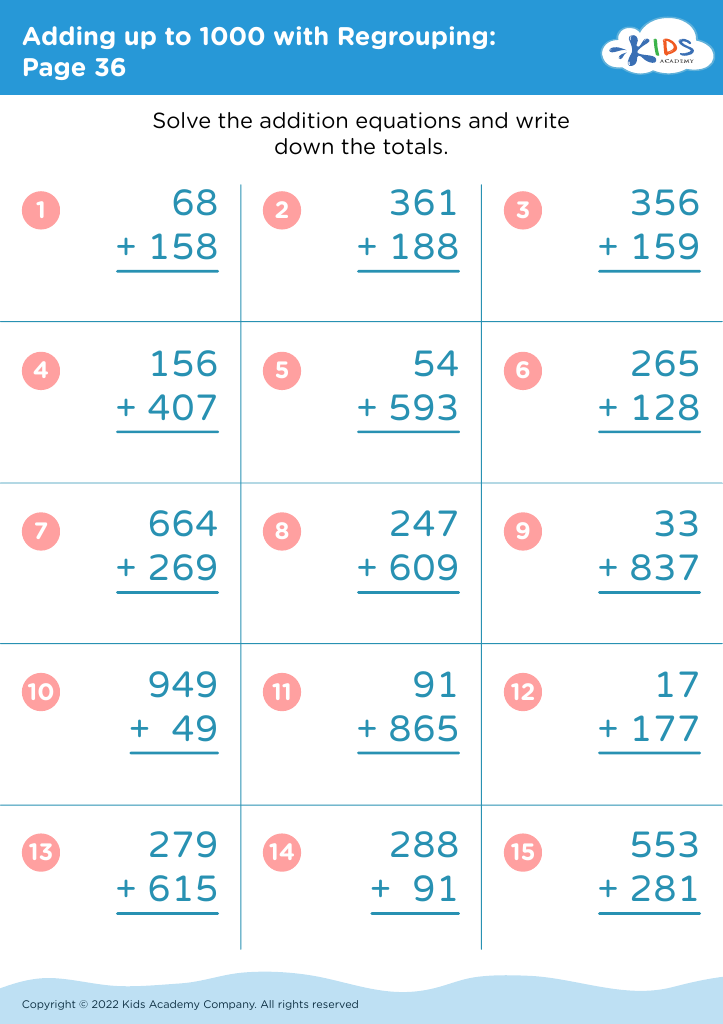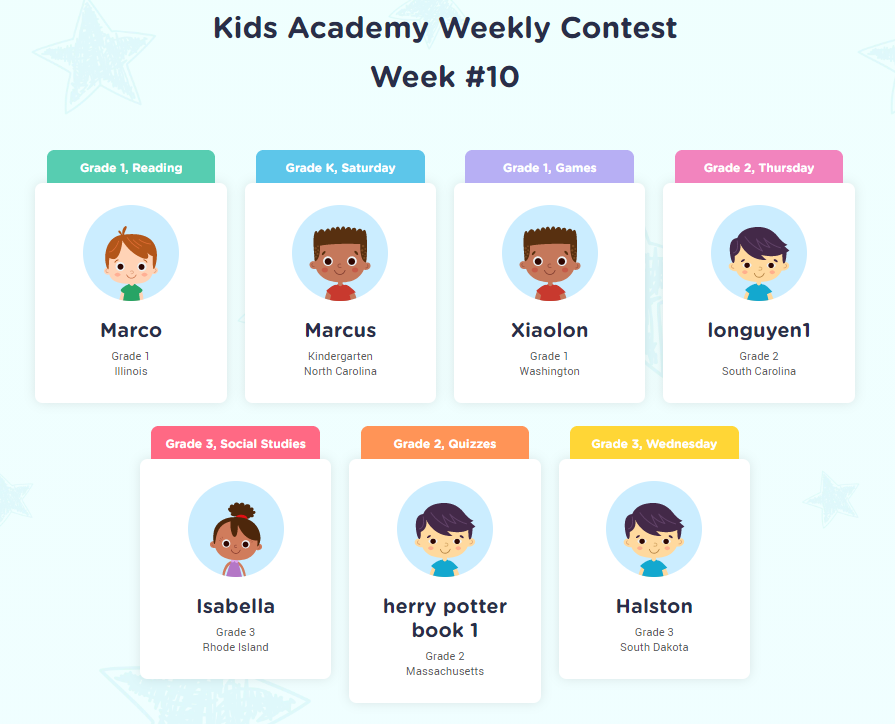Information recall Worksheets for Kids
5 filtered results
-
From - To
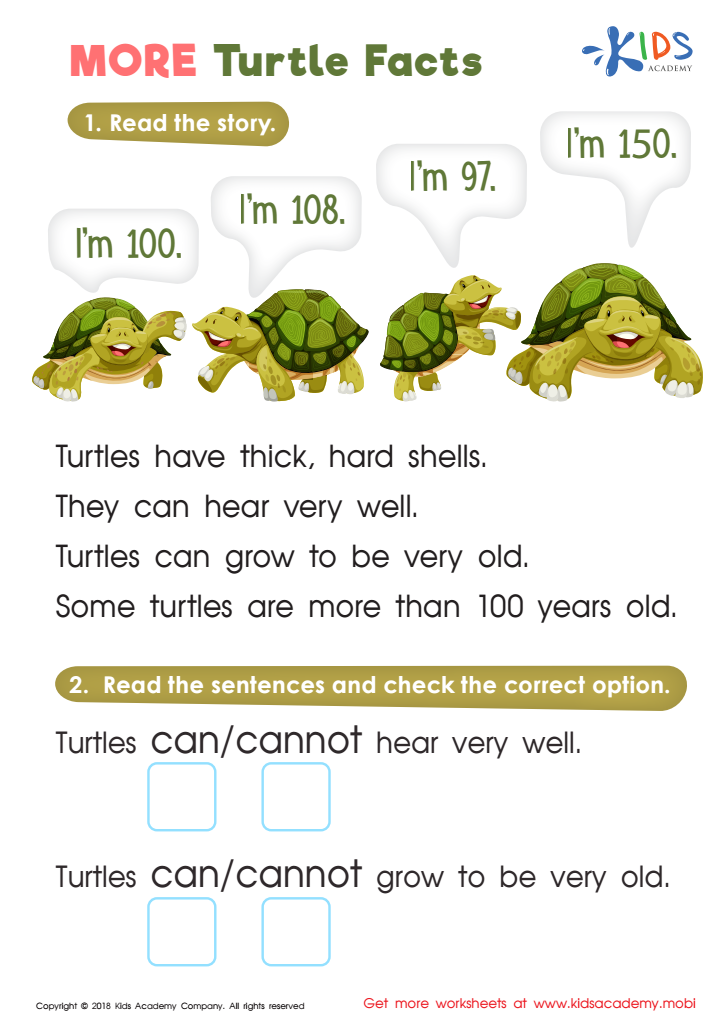

More Turtle Facts Worksheet
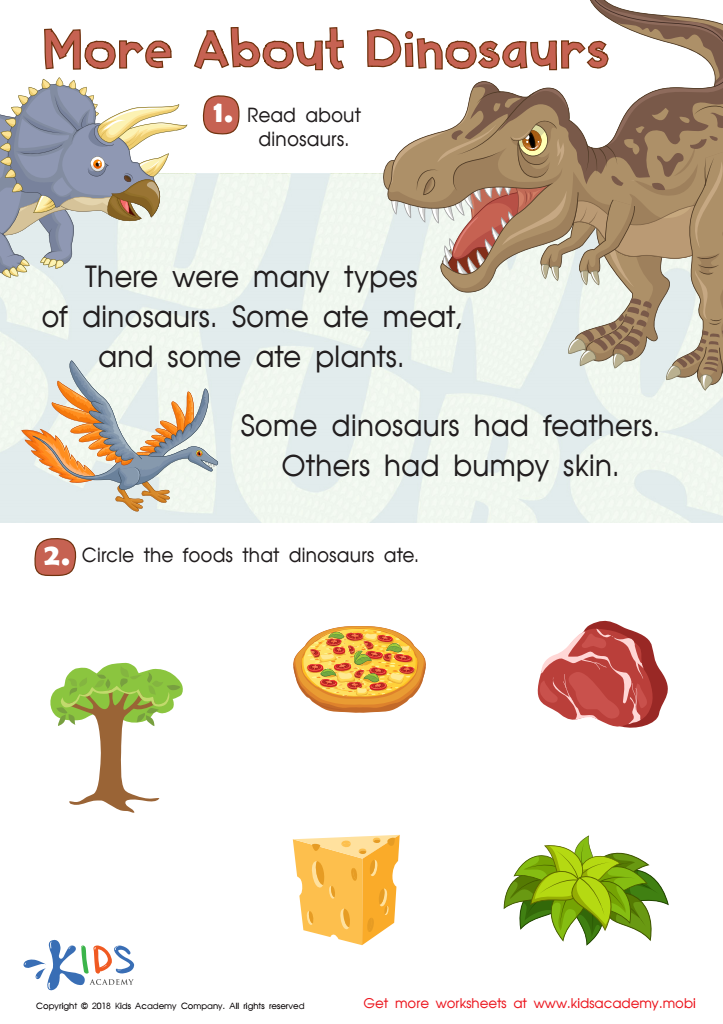

More About Dinosaurs Worksheet
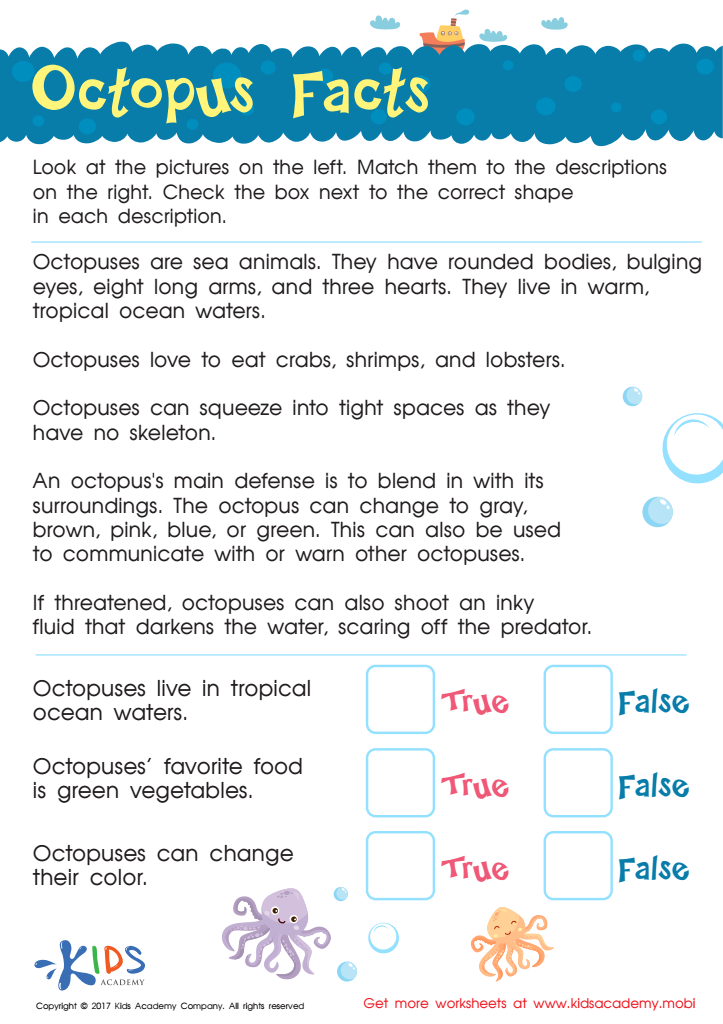

Octopus Facts Worksheet For Kids
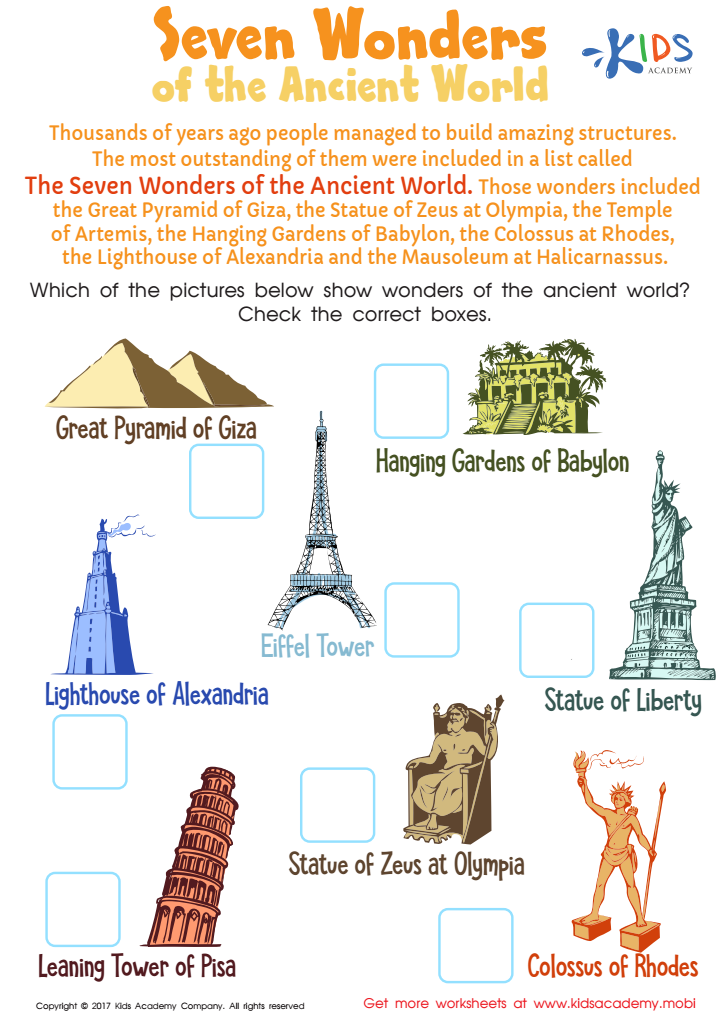

Seven Wonders of the Ancient World Worksheet
Question/Answer
What does the Information recall skill mean when it comes to Grade 1 Reading Non-Fiction learning?
The Information recall skill in Grade 1 Reading Non-Fiction learning involves the ability of students to remember and accurately retrieve facts, details, or information after reading non-fiction texts. It includes recognizing key ideas, important facts, and specific details presented in the texts, and being able to recall this information when asked, without referring back to the text.
How to test a Grade 1 student’s Information recall skills?
To test a Grade 1 student’s information recall skills, use simple, age-appropriate questions or prompts related to recently covered topics. Ask directly about facts, stories, numbers, or events they have learned. Utilize flashcards, pictures, or real objects to visually support questions. Keep the test brief and engaging to maintain their attention and accurately assess their recall ability.
What are some effective activities to train students’ Information recall skill when teaching them about Reading Non-Fiction?
Effective activities for training students' information recall skills in reading non-fiction include summarizing paragraphs, creating mind maps of the content, engaging in question-and-answer sessions, conducting quizzes on key facts, and having students teach back the material to their peers. These activities reinforce understanding and retention by actively involving students in the learning process.

 Assign to My Students
Assign to My Students

